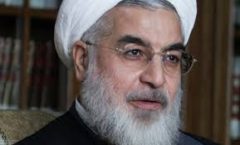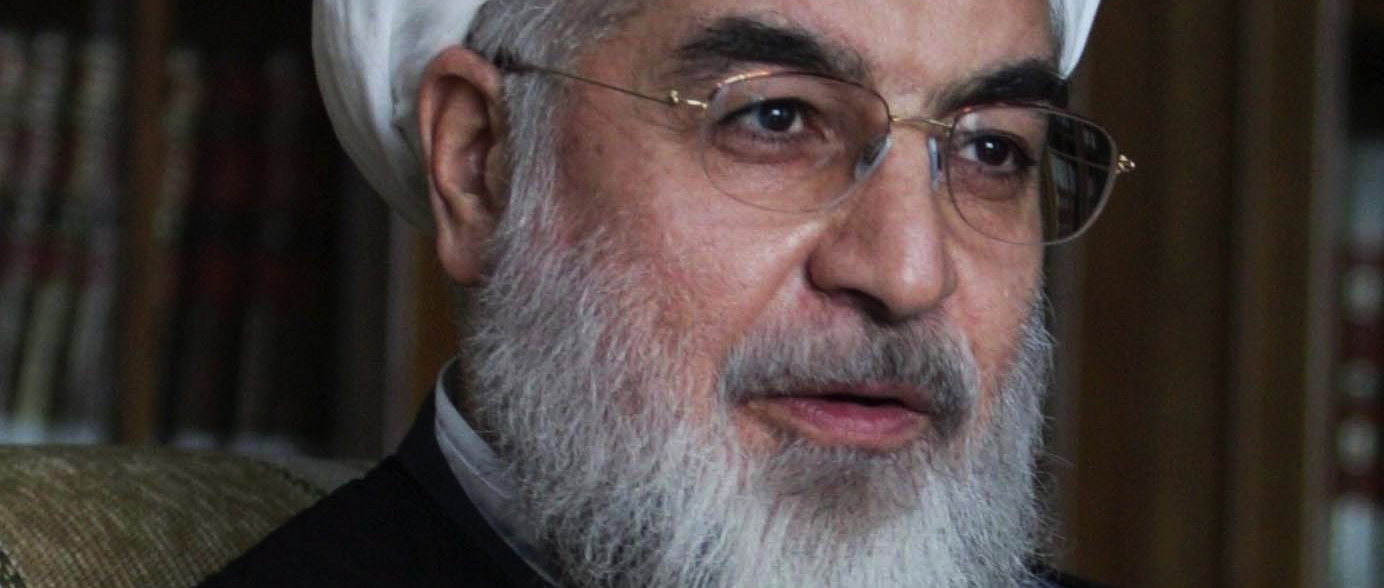Iranian President Hassan Rouhani has launched a public relations blitz. Two weeks ago, he sent Jews a Rosh Hashanah greeting from his Twitter account. In the past few days, while in the United States, he has tried to convince the international community that he is a moderate and a breath of fresh air compared to his clownish yet thuggish predecessor, Mahmud Ahmadinejad.
In a flurry of speeches and interviews designed to sway public opinion in favor of Iran, a country that is increasingly isolated due to its ominous nuclear program, he touched on a number of topics, including the Holocaust.

Judging by his comments, Rouhani, formerly a close aide of Iran’s supreme leader, Ayatollah Ali Khamenei, left a decidedly mixed message, giving pause to optimists who have faith in his ability to alter the status quo.
Interviewed on CNN, he was asked whether he shared Ahmadinejad’s belief that the Holocaust was little more than a myth. In Farsi, he replied disengenuously, “I am not a historian, and when it comes to speaking about the dimensions of the Holocaust it is the historians that should reflect.”
Does one have to be a historian to acknowledge the Holocaust? Rouhani could easily have said that the Holocaust is an indisputable fact, like World War II or the Boer War, and thereby have distanced himself from Ahmadinejad’s disgusting Holocaust denial. Instead, he left the tacit impression that the Holocaust may have been a fabricated event.
But even as he diminished its historical significance, Rouhani condemned the Holocaust as a “reprehensible” and “condemnable” crime against humanity. This prompted a rebuttal from the semi-official Fars news agency, which is linked to hardliners in Iran’s government as well as to the Islamic Revolutionary Guards Corps. According to Fars, Rouhani had never mentioned the word “reprehensible” to describe the Holocaust.
Fars’ commentary muddied the waters, undercutting Rouhani’s sincerity and, perhaps, underscoring the power struggle that pits moderates against radicals in Iran today.
Apparently responding to Fars, Rouhani declared, “We condemn the crimes by the Nazis during World War II.” He added that the war had claimed many victims, including “a group of Jewish people.”
A group? Since when can six million Jewish victims of the Holocaust be cavalierly reduced to a “group”? To be charitable, Rouhani’s translator may have used the wrong word. But if his translation from Farsi to English was accurate, Rouhani was insultingly pouring salt on an open wound.
To no one’s surprise, Rouhani politicized the Holocaust by associating it with the Arab-Israeli conflict. In a reference to the displacement of Palestinian Arabs from their ancestral home in what is now Israel, a nation whose very existence Iran categorically rejects, Rouhani said the Palestinians should not have had “to pay for (Nazi) crimes.”
By conflating the Holocaust with Israel’s struggle with the Palestinians, Rouhani leaves the suggestion that relatively little has changed since the Ahmadinejad era.
Israeli Prime Minister Benjamin Netanyahu may have been correct when he called Rouhani a wolf in sheep’s clothing.
